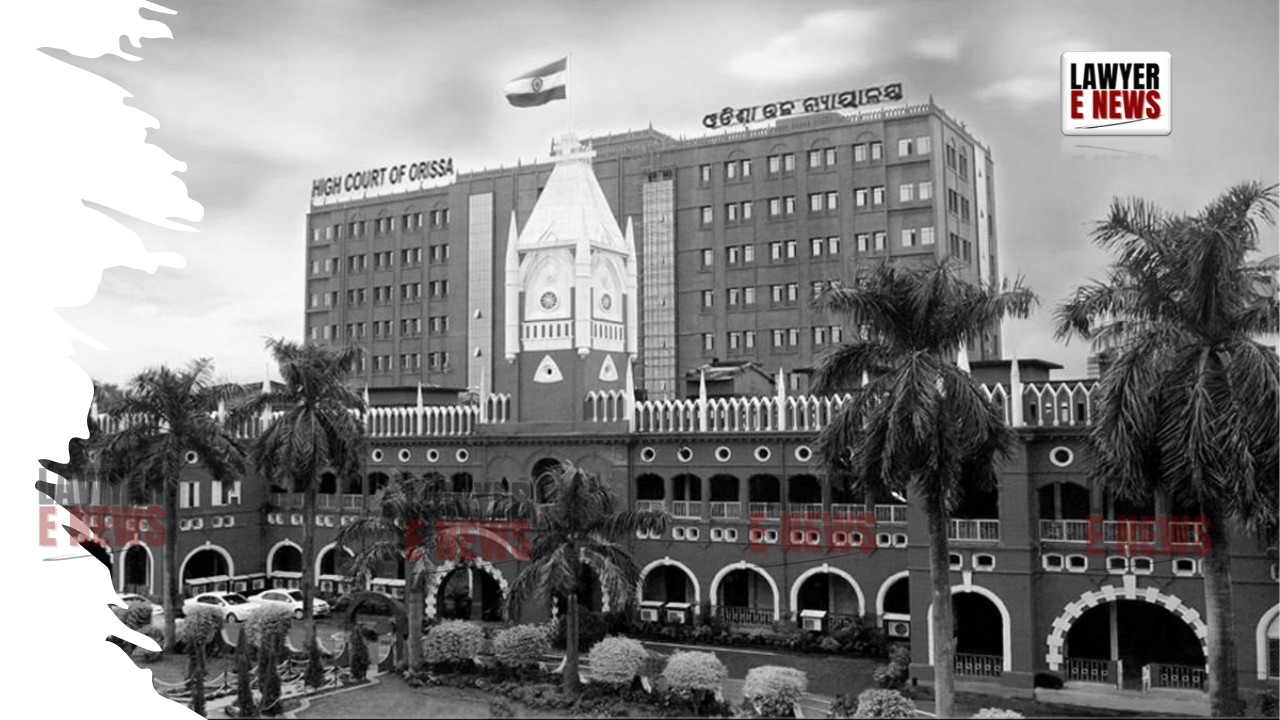-
by Admin
18 February 2026 2:25 PM



“Sanction for Prosecution Is Not a Mere Ritual – Avoiding It by Waiting for Retirement Is an Abuse of Process” - In a powerful verdict that reinforces procedural sanctity and constitutional safeguards for public servants, the Orissa High Court quashed criminal proceedings against a retired officer by declaring that cognizance taken 11 years after a closure report without sanction or protest petition is legally unsustainable.
Justice Sibo Sankar Mishra observed: “When the Court below accepted the final report by granting 54 adjournments to the prosecution to file a protest petition, and none was filed, it was not open for the Court to take cognizance 11 years later… That is impermissible in law.”
“Closure Report Attains Finality If Protest Petition Is Not Filed Within Reasonable Time”
The case pertained to alleged financial irregularities in a tender for the Jambhira Earth Dam project under the Subarnarekha Irrigation Project, tendered in 1995. The Vigilance Department filed a final report in 2006, recommending only departmental action.
The Special Judge, after 54 opportunities, received no protest petition. Yet, in 2017—after 11 years—cognizance was suddenly taken under Sections 13(1)(d)/13(2) of the PC Act and 120-B IPC.
The High Court held:
“Cognizance after such a long delay without any fresh material or protest petition, and after implied acceptance of the closure report, is a miscarriage of justice.”
“Waiting for Retirement to Avoid Sanction Is a Colourable Exercise of Power”
Noting that the petitioner retired in 2009 and cognizance was taken thereafter, the Court reprimanded the Vigilance authorities for bypassing the mandatory requirement of sanction under Section 197 CrPC by strategically waiting:
“The prosecution deliberately waited for the retirement of the petitioner to prosecute him so as to avoid the rigors of obtaining sanction… This conduct is deprecated.”
Relying on State of Punjab v. Labh Singh (2014) 16 SCC 807, the Court said:
“Sanction for prosecution is not an empty formality but a jurisdictional bar, intended to protect officers from frivolous prosecutions.”
“Speedy Trial Is a Fundamental Right Under Article 21—Delay of 14 Years Is Unconscionable”
The Court emphasized that the right to a speedy trial includes every stage from investigation to trial. In this case, from FIR in 2003, final report in 2006, to cognizance in 2017, the delay was excessive and unexplained.
“Such a delay shakes the conscience of this Court. Speedy trial is the constitutional guarantee of every accused person and has been denied to the petitioner for no fault of his.”
Citing A.R. Antulay v. R.S. Nayak (1992) 1 SCC 225:
“The right to a speedy trial extends not only to trial but also to investigation. The delay herein is fatal.”
“Same Allegations in Parallel Case Were Closed—Discriminatory Prosecution Cannot Be Permitted”
The Court also found that the same petitioner was exonerated in VGR No. 35/2003, a case based on identical allegations. There, the court accepted the final report in 2010.
“When two cases involving the same dam project, same officer and same set of facts receive different treatments, it smacks of arbitrariness. Law demands equality in treatment.”
“No Criminal Intent Alleged – At Most, a Departmental Lapse”
Justice Mishra finally observed: “Even on merits, the allegation at best discloses administrative irregularities or dereliction of duty. There is no whisper of corrupt intent or mens rea… such matters fall within the domain of departmental proceedings.”
The Orissa High Court quashed the criminal proceedings, holding that the prosecution violated the principles of fairness, constitutional protections under Articles 14 and 21, and mandatory statutory safeguards.
“The impugned order taking cognizance is set aside. The entire prosecution is vitiated for want of sanction, unconscionable delay and unequal treatment.”
The petition was accordingly allowed, and the accused stands discharged.
Date of Decision: 05.05.2025
